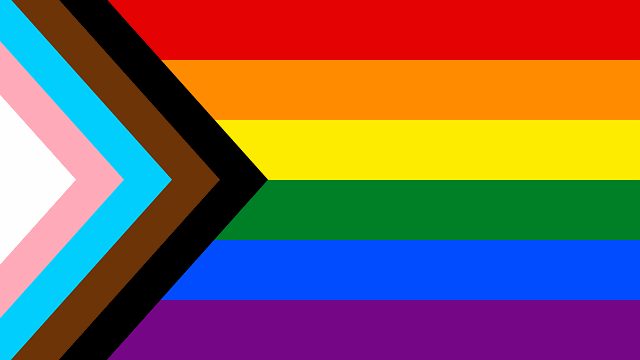 The LGBTQ community, consisting of lesbian, gay, bisexual, transgender, and queer individuals, faces unique challenges in society due to discrimination, prejudice, and a lack of understanding. Supporting LGBTQ youth, couples, and families is essential for fostering inclusive communities and ensuring that everyone can live authentically and without fear. This guide aims to provide insights into the LGBTQ community, the hardships they encounter, ways to be an ally, and avenues for seeking support.
The LGBTQ community, consisting of lesbian, gay, bisexual, transgender, and queer individuals, faces unique challenges in society due to discrimination, prejudice, and a lack of understanding. Supporting LGBTQ youth, couples, and families is essential for fostering inclusive communities and ensuring that everyone can live authentically and without fear. This guide aims to provide insights into the LGBTQ community, the hardships they encounter, ways to be an ally, and avenues for seeking support.
The LGBTQ community encompasses a wide range of individuals with different sexual or romantic orientations and/or gender identities. Sexual orientation refers to an individual’s enduring physical attraction to others. This includes identities such as gay, lesbian, bisexual, pansexual, and asexual. Romantic orientation is a person’s romantic or emotional attraction to others; someone can be heteroromantic, homoromantic, biromantic, panromantic, or aromantic. Gender identity relates to one’s internal sense of their own gender, which may or may not align with the sex assigned at birth. Transgender, nonbinary, and genderqueer are examples of gender identities. LGBTQ individuals, like other individuals, may also belong to other marginalized groups based on race, ethnicity, religion, disability, or socioeconomic status. This is referred to as intersectionality and can lead to compounded discrimination and challenges.
Despite progress on LGBTQ rights, significant challenges persist. LGBTQ individuals often face discrimination in employment, housing, health care, and education, leading to disparities in access and opportunities. Prejudice and societal norms can result in isolation, rejection from family and peers, and psychological distress. This, in turn, contributes to higher rates of mental health issues and suicide among LGBTQ individuals. In many regions, discriminatory laws and policies restrict LGBTQ rights; this added hardship can be both unsafe and detrimental to the community at large.
Being an ally to the LGBTQ community involves actively supporting and advocating for equal rights and acceptance. There are many ways to be an effective ally, such as educating yourself, respecting pronouns and identities, speaking out against discrimination, supporting LGBTQ-inclusive policies, and creating safe spaces for the LGBTQ community. Take the initiative to learn about LGBTQ terminology, experiences, and issues. Listen to diverse voices within the community, and seek out reputable resources for accurate information. Use individuals’ preferred pronouns and respect their gender identities. Avoid assumptions about someone’s sexual orientation or gender identity based on appearance. Challenge homophobic, transphobic, and derogatory remarks or behaviors when you encounter them. Use your privilege to amplify the voices of marginalized LGBTQ individuals. Advocate for policies and laws that promote equality and protect the rights of LGBTQ individuals in areas such as employment, health care, and education. And foster environments where LGBTQ individuals feel welcomed, valued, and affirmed. This includes workplaces, schools, faith communities, and social settings.
For LGBTQ youth, couples, and families, accessing support networks and resources is crucial for resilience and well-being. A few avenues for seeking support include community centers, online communities, therapy and counseling, supportive organizations, and family and friends. LGBTQ community centers offer a range of services, including support groups, counseling, social events, and educational workshops. These centers provide safe spaces for networking and accessing resources. Virtual platforms and social media groups provide opportunities for LGBTQ individuals to connect, share experiences, and offer support to one another, especially for those in remote or isolated areas. LGBTQ-affirming therapists and counselors can provide specialized support for addressing issues related to sexual orientation, gender identity, coming out, and family dynamics. And numerous nonprofit organizations and advocacy groups focus on LGBTQ rights and help with legal, medical, and social services. These organizations often offer helplines, online resources, and referral services. Building a supportive network of allies within one’s family and social circles can provide invaluable emotional support and validation for LGBTQ individuals and their loved ones.
Supporting LGBTQ youth, couples, and families requires empathy, education, and advocacy. By understanding the challenges faced by the LGBTQ community, being an active ally, and providing avenues for support, individuals can contribute to creating more inclusive and affirming environments where everyone can thrive regardless of sexual orientation or gender identity. Working toward a society that celebrates diversity and embraces equality for all is a collective responsibility that requires ongoing education, advocacy, and unwavering commitment to justice and inclusion.
LGBTQ Support Groups, Organizations, and Associations
- Friends and Family Support Systems for LGBTQ Youth
- PFLAG Support
- GLSEN: Our Work
- The Family Acceptance Project
LGBTQ Hotlines
- LGBT National Help Center
- Trans Lifeline
- Help for LGBTQ Survivors of Sexual Violence
- The National Domestic Violence Hotline
LGBTQ Youth, Couple, and Family Guides
- Tips for Parents of LGBTQ Youth
- LGBTQ Mental Health and Social Support
- The Most Impactful Ways to Support the LGBTQIA+ Community
- Five Ways to Support LGBTQ Youth
- Supporting LGBTQ Youth Through Family Engagement
- How to Support LGBTQ Children
- LGTBQ Family Support
- Cedars-Sinai Tips for Supporting the LGTBQ Community
- Nine Strategies to Support LGTBQ Youth
- How Can Adults Support the Mental Health and Well-Being of LGBTQ Youth?
- Tips for LGBTQ Students to Thrive
- How to Be an Ally to LGBTQ Youth
- Caregiver Support for LGTBQ Youth
- How to Support LGBTQ Youth
- A Resource Guide for LGBTQ Families
- Caring for LGBTQ Children and Youth: A Resource Guide for Child Welfare Providers
- Project Thrive Checklist for Educators
- A Guide to Healthy, Safe LGTBQ Relationships
- Creating an Inclusive School Climate
- An Ally’s Guide to Talking About Same-Sex Marriage
- How to Handle Unsupportive Family as a LGTBQ Couple

